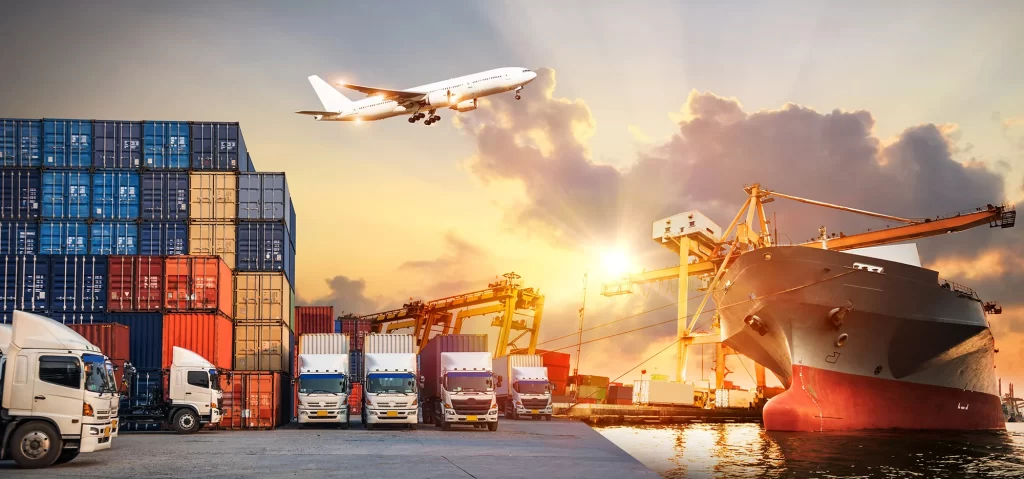In today’s globalized economy, efficient logistics management is crucial for businesses looking to expand their reach and streamline operations. Freight forwarding services play a pivotal role in facilitating the movement of goods across borders, offering expertise in navigating complex shipping regulations and ensuring timely delivery. This guide provides a step-by-step overview of how to effectively utilize a freight forwarder for your shipping needs, from initial consultation to final delivery.
What is Freight Forwarding?
Freight forwarding is a service-oriented industry that manages the transportation of goods from one location to another on behalf of shippers. Freight forwarders act as intermediaries between businesses (shippers) and various transportation services, coordinating logistics and ensuring shipments reach their destination safely and on time.
Why is Freight Forwarding Important?
The importance of freight forwarding cannot be overstated in today’s interconnected global economy:
- Expertise and Knowledge: Freight forwarders possess specialized knowledge of shipping regulations, customs procedures, and logistics management.
- Global Reach: They have extensive networks of carriers, agents, and logistics partners worldwide, enabling seamless international shipping.
- Efficiency: By handling complex logistics tasks, freight forwarders optimize shipping routes, reduce transit times, and minimize costs for businesses.
- Risk Management: They provide cargo insurance options and manage potential risks associated with shipping, ensuring peace of mind for shippers.
How does Freight Forwarding work?
Consultation
Document Gathering
Transportation
Customs Clearance
Tracking
Evaluation
Initial Consultation and Requirements Gathering
The process begins with an initial consultation between the shipper (you) and the freight forwarder:
- Needs Assessment: Discuss your shipping requirements, including the type of goods, volume, destination, and timeline. Being clear and concise about your goals here is pivotal to the success of the relationship and your goods.
- Customized Solutions: The freight forwarder assesses your needs and proposes customized shipping solutions tailored to your specific requirements. These solutions in Legacys case will be the most effective for our vast nationwide internal network, and worldwide connections. Check them out here!
- Cost Estimation: Receive a comprehensive cost estimate that includes transportation fees, customs duties, insurance, and any additional services required.
Booking and Documentation Preparation
Once you’ve agreed on the shipping terms, the freight forwarding process moves into the booking and documentation stage:
- Booking Confirmation: Confirm the shipment details, including pickup location, delivery address, and preferred transportation mode (air, sea, road, rail).
- Documentation Preparation: The freight forwarder prepares essential shipping documents such as:
- Bill of Lading: A contract between the shipper and carrier detailing the terms of transportation.
- Commercial Invoice: Details the goods being shipped, their value, and other relevant information for customs clearance.
- Customs Documentation: Includes forms required by customs authorities at origin and destination to facilitate smooth clearance.
Transportation and Cargo Handling
With documentation in place, the freight forwarder coordinates transportation and manages cargo handling:
- Carrier Selection: Selects appropriate carriers or coordinates with in house teams and transportation modes based on shipment requirements, cost-effectiveness, and transit time.
- Cargo Consolidation: For less than container load (LCL) shipments, the forwarder consolidates multiple shipments into a single container to optimize space and reduce costs. For bigger more individualized loads, or ones on a higher expedited timeline they begin the next steps.
- Packaging and Labeling: Ensures goods are properly packaged and labeled according to international shipping standards to prevent damage and comply with regulations.
Customs Clearance and Compliance
Navigating customs clearance is a critical step in international shipping:
- Customs Documentation Submission: Submits required documents to customs authorities at both origin and destination.
- Duties and Taxes: Handles payment of import duties, taxes, and fees on behalf of the shipper to expedite clearance.
- Compliance with Regulations: Ensures all shipments comply with import/export regulations, including restrictions on certain goods and documentation requirements.
Tracking and Monitoring
Throughout the shipping process, the freight forwarder provides real-time tracking and monitoring of your shipment:
- Tracking Technologies: Utilizes GPS, RFID, or online tracking systems to monitor the location and status of your goods. This is critical to understanding the location of your good and ensures the reliability of delivery.
- Visibility and Updates: Provides regular updates on shipment progress, anticipated arrival times, and any potential delays or issues.
Delivery and Final Mile Logistics
As the shipment nears its destination, the freight forwarder manages final mile logistics and delivery:
- Destination Services: Coordinates with local agents or partners to arrange for customs clearance at the destination port or airport.
- Delivery Coordination: Ensures timely delivery to the consignee’s designated location, handling any last-mile transportation challenges.
- Proof of Delivery: Provides proof of delivery and collects any necessary signatures or documentation to confirm receipt of goods.
Post-Shipment Services and Evaluation
After delivery, the freight forwarder may offer additional post-shipment services:
- Feedback and Evaluation: Solicits feedback from the shipper regarding the overall shipping experience, including service quality and adherence to timelines.
- Continuous Improvement: Uses feedback to improve service offerings and enhance customer satisfaction for future shipments.
Conclusion
Utilizing a freight forwarder streamlines the complexities of international shipping, offering expertise in logistics management and ensuring your goods reach their destination efficiently and cost-effectively. By following these steps and partnering with a reputable freight forwarder, businesses can optimize their supply chain operations, minimize risks, and focus on core business activities. For expert assistance with your shipping needs, contact [Your Company Name] today and discover tailored freight forwarding solutions that meet your business objectives.

